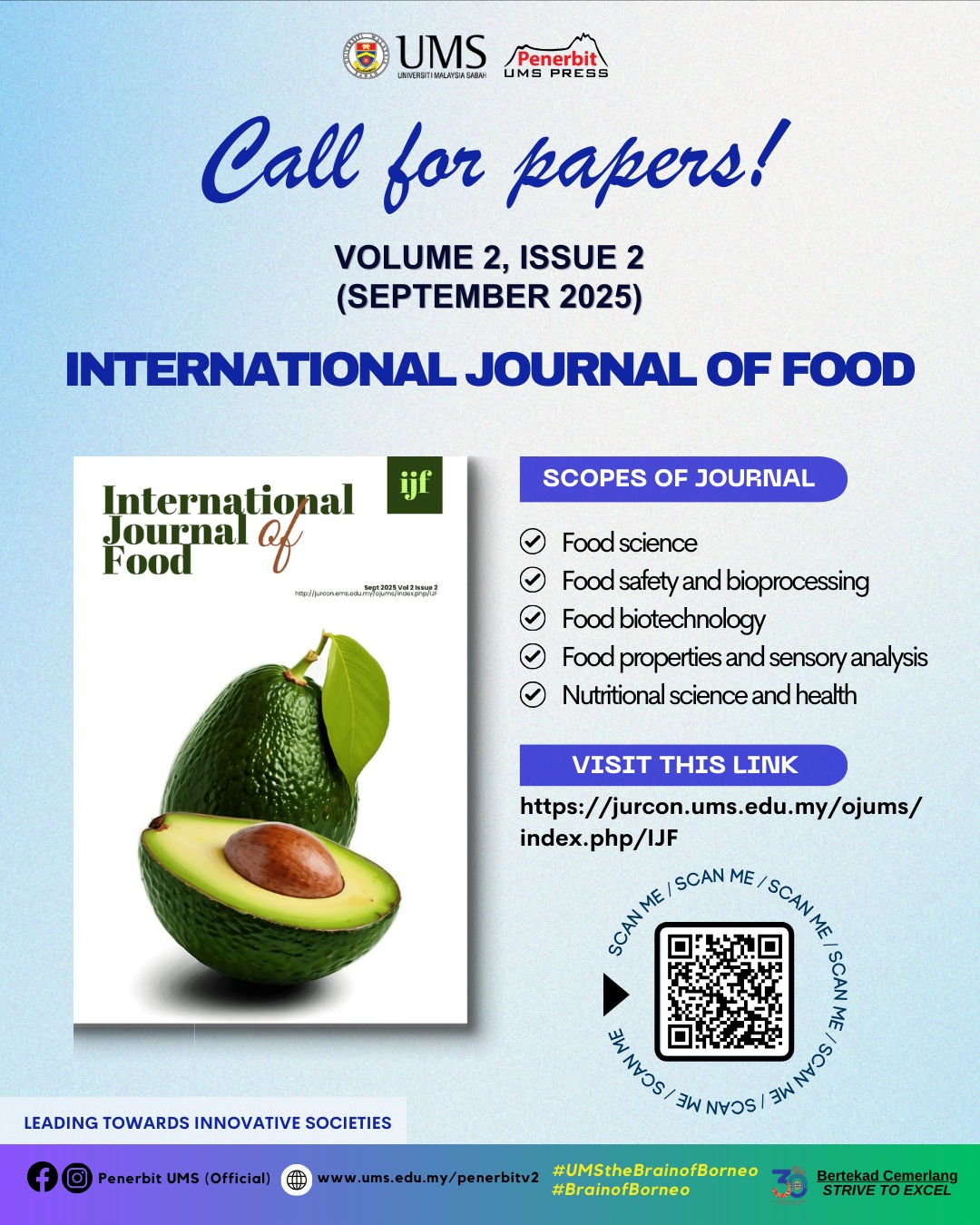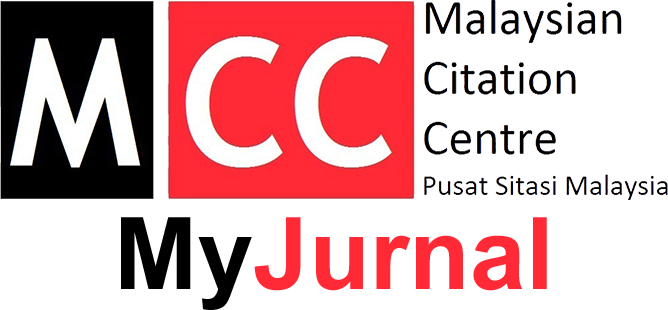Nutrition Status, Perspective and Usage of Traditional and Complementary Medicine among Cancer Patients in Malaysia: A Descriptive Study
DOI:
https://doi.org/10.51200/ijf.v1i1.4815Keywords:
cancer, nutrition status, perspective, TCM, usageAbstract
Cancer sufferers typically seek a rapid alternative remedy, such as traditional and complementary medicine (TCM). Reliable data on the prevalence and patterns of TCM usage in cancer patients is essential for analyzing its implications for oncological treatment and establishing evidence-based research concepts with the possibility for TCM ongoing education and regulation. This study aimed to determine the prevalence and type of TCM as well as to explore patients' perspectives on TCM and nutrition status among cancer patients in Malaysia. A cross-sectional study was conducted at Institut Kanser Negara and Hospital Kuala Lumpur. The validated Malaysian Breast Cancer Survivorship Cohort (MyBCC) questionnaire and most recent medical record was used. Subjects were followed up after a month to obtain anthropometric data and nutritional intake. A total of 382 qualified patients with a median age of 51.38±11.73 years and 76.7% female were recruited. Ethnicity (p<0.001), type of cancer (p=0.04), working status (p=0.015), and family history (p=0.012) were associated with TCM use. Ethnicity showed a significant adverse impact on TCM use [OR=-1.140 (95%CI: 0.170 – 0.603), p<0.001]. There were significant changes in total BMI (p<0.001) among subjects from pre-diagnosis to follow-up. Overall mean energy and protein intake was 22kcal/kg bodyweight and 0.75gram/kg bodyweight, respectively. Dietary supplements were the most often utilized TCM (79.7%), and 37.3% began using TCM before conventional treatment. Only 56.4% of subjects disclosed their TCM use to their doctor, and 61% believed TCM was useful in cancer treatment. There was no difference in nutritional status between T&CM users and non-users. However, many newly diagnosed cancers patients have shown reluctance to pursue standard therapy, citing fear of side effects as the primary cause. Patient education is essential, and practitioners should be aware of the use and safety of TCM.










